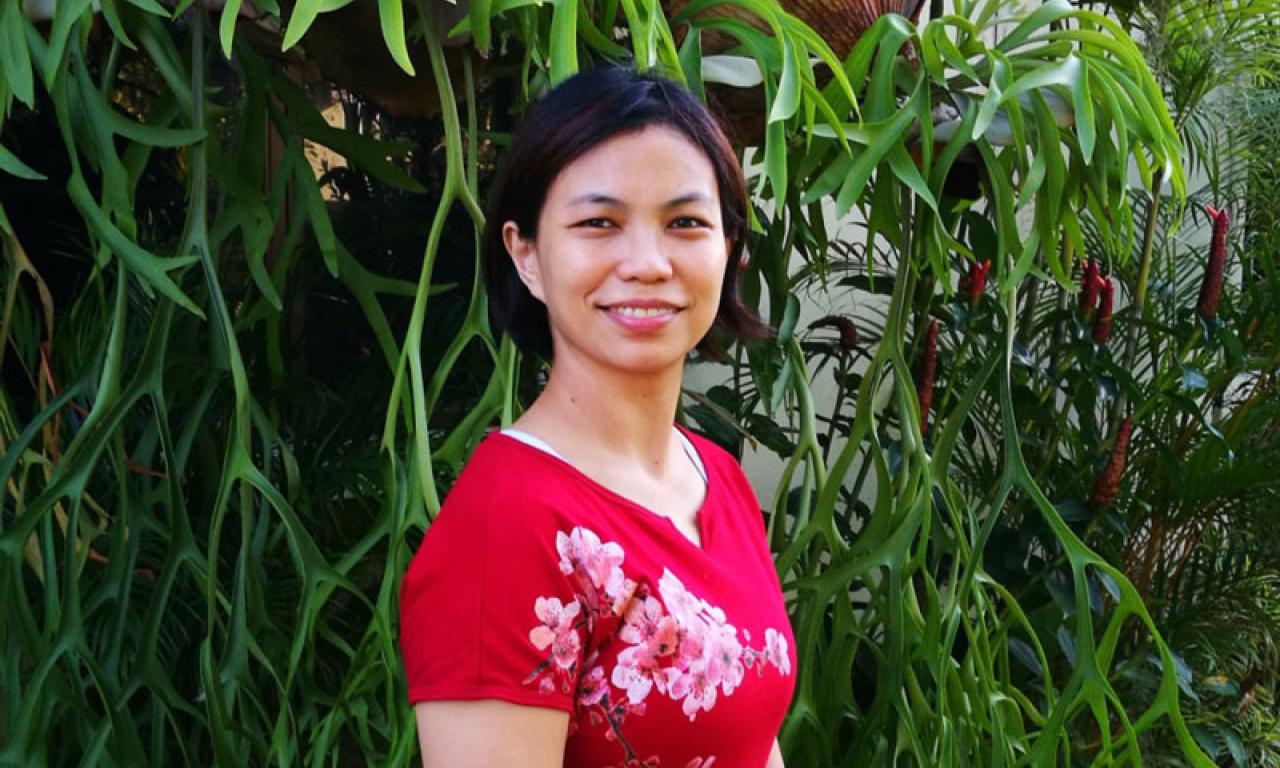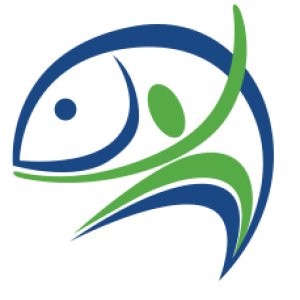
WorldFish is a global leader in aquatic food systems research and innovation for healthy people and planet. Science and partnerships are the foundation of our work. Our team delivers robust evidence to policymakers and technological innovations to producers, value chain actors and consumers in order to transform food systems. In this series, we profile our emerging scientists, early career researchers who are already making a significant contribution to fisheries and aquaculture.
WorldFish is a global leader in aquatic food systems research and innovation for healthy people and planet. Science and partnerships are the foundation of our work. Our team delivers robust evidence to policymakers and technological innovations to producers, value chain actors and consumers in order to transform food systems. In this series, we profile our emerging scientists, early career researchers who are already making a significant contribution to fisheries and aquaculture.
Laura Khor, a WorldFish Research Fellow, earned her Master of Science in Aquaculture from Universiti Malaysia Sabah and is currently working on novel approaches to monitoring and mitigating disease outbreaks in aquaculture. She is developing a suite of virtual courses and online tools to increase the accessibility of information to aquatic food farmers in low- and middle- income countries, eager to prevent losses and sustain their livelihoods. She hopes to bridge the gap between researchers and rural farmers by developing integrative platforms that facilitate the exchange of information.
What are you currently working on for WorldFish?
I am currently working on the development of Learn.Ink online courses that focus on disease surveillance in aquaculture, in order to deliver training material to farmers and extension workers in remote areas via mobile and web-based applications. The courses review the clinical signs of fish disease, current sampling protocols and the available online survey tools that aid in disease investigation. Apart from these tools, I am also in the process of developing an online monitoring form to report fish mortality and disease outbreaks in stocks cultured at WorldFish facilities. This online form is easily accessible via a website link or QR code and can be used for robust health assessments. It’s automated to send alerts whenever abnormalities are reported.
Furthermore, I am working in a team to develop clear rapid sampling guides to be used during both routine health assessments and disease investigations. The updated version of this sampling protocol will be made available as another e-learning course. More courses will be developed on Learn.Ink in future projects to increase reach to aquaculture farmers in low- and middle-income countries.
What’s the most exciting part of your research area?
I’m thrilled over the recent development of online tools that allow our team to reach farmers and deliver training virtually throughout the COVID-19 pandemic. I’m hopeful that this set of online tools will allow us to further promote a sense of community among our aquatic food farmers and to provide a platform for their issues to be heard and addressed. This platform offers us a way to train and educate farmers so they can make informed decisions independently, particularly when our experts are unable to be physically present at the site to tackle issues that require immediate attention.
How can your research be used to manage disease outbreaks in aquaculture?
Data is essential to uncovering the crux of every disease problem. By using the online tools we are currently developing, which will also be made operational when offline, farmers will learn how to collect samples for disease diagnosis and, in future courses, be able to can dispatch disease and mortality data to authorities or local animal health specialists in order to rapidly report abnormalities and outbreaks. In return, they can expect a quicker response and solution to their plight. Online tools also allow us to deliver educational training material in different media forms (video, audio, images) that would otherwise require onsite training and travel to the respective countries. By educating farmers on how to best prevent and mitigate disease outbreaks, we are not only teaching them to fish—we teach them how to hold the line without breaking it. In return, researchers are also brought up to speed regarding the realities on the ground and in the farm.
How will technological innovation transform aquatic food systems in the future?
Technological innovation will provide a more resilient and transparent way of sustaining livelihoods, ensuring food security and buffering against disruptions in the production chain. No matter their location, farmers will be able to access essential information on measures to reduce disease outbreaks, as well as proper protocol on what to do and who to contact when an outbreak does occur. On the other end of the spectrum, increased transparency in food systems will allow consumers to be privy to the production process of the food on their plate. Although there is a risk to be subservient to technology, we instead need to understand how technology can best serve the needs of the people.
What innovation are you currently working on with future applications?
Though still in its early stages, I’ve had the pleasure of collaborating with ZenSpectra— a startup that creates smart devices to detect adulteration in food items—on a proposal to use an infrared tool to analyze food safety indicators in aquatic food products using cloud-based machine learning. This tool holds great potential to increase transparency by rapidly measuring quality indicators along the value chain, reducing the need to transport samples to the lab. Results would become almost immediately available to end users once the predictive model has been trained. We are hoping to develop this proposal further to apply for future funding.
What do you hope your research ultimately achieves?
At the end of the day, I hope my research will make practical tools and information available to even the most remote and low-income farmers. I want them to be able to utilize these tools to communicate with experts in the field, receive industry updates and share urgent data before major losses occur from disease outbreaks.
Additionally, I hope our integrated tools and platform will prove useful not only to our target countries, but also to farmers worldwide who fall in the gap below the poverty line, those who are inexperienced or just beginning their farming venture, those who are unable to advance beyond traditional practices but experiencing new issues, and those who currently have no means to access the latest scientific breakthroughs in aquaculture. We want to grant them the advantage of being in the same boat, so that they can collaborate and work together through the next storm.
What would your dream role be in your research area?
I hope to someday create an integrative library where we can provide an all-in-one and user-friendly platform. The platform would allow farmers to access training resources while providing researchers with essential data. Scientists and aquatic animal health experts would be able to share the latest updates and important findings directly with farmers in simple layman’s terms and in a visually interactive manner. Experts could further offer invaluable step-by-step advice to farmers on what to do in a particular situation, regardless of where they are in the world and what education level they might have. I would love to be a part of that joint researcher-farmer collaborative group.
